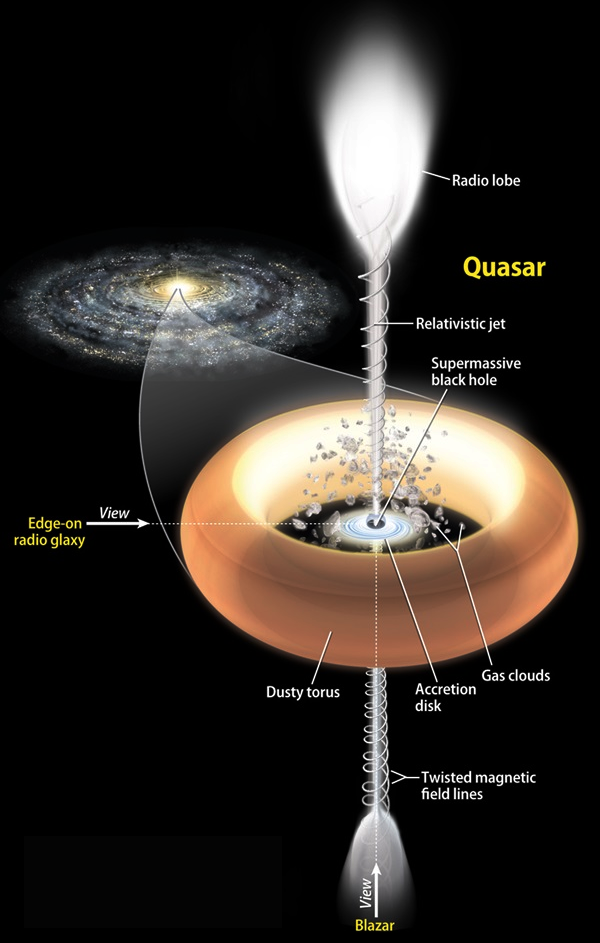Science & Technology
Time Dilation in Early Universe
- 07 Jul 2023
- 5 min read
For Prelims: Quasars, Big Bang, Einstein's Theory of Relativity.
For Mains: Time Dilation in Early Universe.
Why in News?
A recent study has utilized observations of Quasars, intense black holes to demonstrate time dilation in the early universe.
- The researchers examined the brightness of 190 quasars across the universe, dating back approximately 1.5 billion years after the Big Bang. By comparing the brightness of these ancient quasars to those existing today, they discovered that certain fluctuations that occur in a specific duration today occurred five times more slowly in the earliest quasars.
What are the Key Highlights of the Study?
- Slower Passage of Time in the Past:
- The continual expansion of the universe accounts for the slower passage of time in the past compared to the present.
- The time passed approximately one-fifth as quickly as it does today. The observations stretch back to about 12.3 billion years ago, when the universe was roughly a tenth its present age.
- According to Einstein's general theory of relativity, time and space are interconnected, and since the Big Bang, the universe has been expanding in all directions.
- Previous Observations:
- Scientists had previously documented time dilation dating back around 7 billion years based on observations of supernovas, stellar explosions.
- By studying these explosions from the past, they found that events unfolded more slowly from the perspective of our present time due to the known time it takes for today's supernovas to brighten and fade.
What is the Significance of the Study?
- This research highlights the intricate nature of time and its interplay with the expansion of the universe.
- By continuing to explore distant objects and phenomena, scientists hope to gain further understanding of the concept of time and its potential implications, including the possibility of time travel and advanced propulsion systems like warp drives.
What are Quasars?
- About:
- Quasars, which are incredibly bright objects, served as a "clock" in the study. They are supermassive black holes, millions to billions of times more massive than the sun, located at the centers of galaxies.
- These black holes draw matter towards them through strong gravitational forces, emitting powerful radiation and high-energy particle jets, while surrounded by a glowing disk of matter.
- Significance of Quasars in Examining Time Dilation:
- Quasars provide an advantage over individual stellar explosions because their brightness remains observable from the early stages of the universe. The fluctuations in quasar brightness reveal statistical properties and time scales that can be used to measure the passage of time.
What is Time Dilation?
- Time dilation is a phenomenon in physics that occurs due to differences in relative motion or gravitational fields. It is a consequence of Einstein's theory of relativity, both the special theory of relativity and the general theory of relativity.
- In the special theory of relativity, time dilation occurs when two observers are in relative motion to each other.
- According to this theory, time is not absolute but is relative to the observer's frame of reference.
- When objects move relative to each other at speeds close to the speed of light, time appears to pass more slowly for the moving object compared to the stationary one.
- This means that time is dilated or stretched out for the moving object from the perspective of the stationary observer.
UPSC Civil Services Examination Previous Year Question (PYQ):
Q. Consider the following phenomena: (2018)
- Light is affected by gravity.
- The Universe is constantly expanding.
- Matter warps its surrounding space-time.
Which of the above is/are the prediction/predictions of Albert Einstein’s General Theory of Relativity, often discussed in media?
(a) 1 and 2 only
(b) 3 only
(c) 1 and 3 only
(d) 1, 2 and 3
Ans: (d)





